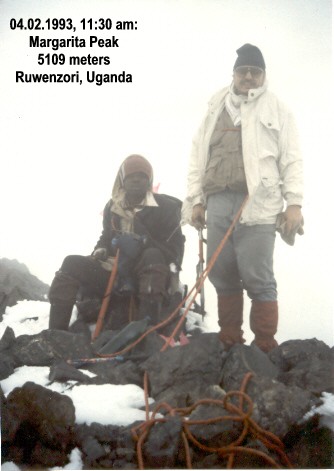JJ Rawlings: Challenges for democracy in Africa
Ich bin nicht unbedingt ein Freund JJ Rawlings, vor allen Dingen, wenn ich sehe, wie er sich in den letzten zwei Jahren, die ich in Ghana verbringe, politisch geriert. Andererseits könnte er für mich der Elder Statesman sein, denn er hat Anfang 2001 die Macht an eine demokratisch gewählte Oppositionspartei, die New Democratic Party (NPP), übergeben. Dieser Umstand kann für die demokratische Entwicklung Ghanas, die noch lange nicht abgeschlossen ist und mit den Wahlen Ende 2008 einer großen Herausforderung gegenübersteht (Kenia lässt grüßen!), nicht hoch genug eingeschätzt werden. Daher lese ich Rawlings im Ausland gehaltenen Reden immer mit großem Interesse (in Ghana sondert er politisch leider fast nur dummes Zeug ab). Vor einigen Tagen sprach er vor dem Media Trust Limited of Nigeria in Abuja . Dem Inhalt stimme ich in wesentlichen Teilen voll zu*. Hier ein Auszug:
" ... let me recall that political observers and leaders of the western world have already judged African countries to be practising democracy only since the beginning of the I 990s, hence the current improvement in security, stability and economies in various parts of the continent. They have therefore concluded subsequently that unless African countries accept western ideas of democracy, especially as formulated in conditionalities of donor countries and international financial institutions, the future for Africa is bound to be bleak. In my view, this is a rather arrogant and erroneous claim which seeks to deny the African originality or any organisational ability in the matter of governance. On the contrary, a serious study of the history of traditional governance on the continent confirms that democratic ideas are not new to Africa, and that the majority of precolonial systems of traditional governance in Africa had, and in many cases still have, strong democratic elements. The pre-colonial contact with Europeans and the colonial period itself rather disrupted the old systems in many ways, and have left behind situations which are the root causes of many of today’s problems. The practice of good governance in Africa today is also therefore an extension of an inherited traditional governance. In stating this point of view, I am by no means denying the possible advantages of western ideas, institutions and systems which are generally labelled ‘good governance’. I merely wish to emphasise that the modern norms of governance are not that foreign to Africans whose decision-making, for example, has too often been erroneously attributed to the whims of their all-powerful chiefs. Traditional societies, as you are aware, have enjoined their chiefs and leaders to consult and listen to individuals, representatives of interest groups such as women, the youth, and even strangers living in the area. Lengthy debates led to consensus that paved the way for unity in action. It is a fact that it was the colonial period that rather corrupted traditional systems of governance and, in many ways, have triggered some of the challenges that confront democratic governance today." (Hervorhebungen: KDL)
>> Quell-URL (Latest Ghana News auf Ghanaweb.com)
In der Tat fordere ich seit über 20 Jahren die Anpassung aufoktroyrter politischer Systeme an afrikanische kulturelle Werte und politsche Herrschaftstraditionen - vergeblich. Schuld sind weniger die entwickelten Länder, sondern Schuld ist vielmehr die Denkfaulheit afrikanischer Eliten -- politisch wie wissenschaftlich -, die sich mit dem jetzigen System bestens arrangiert haben und vor allem noch besser davon profitieren -- auf Kosten der afrikanischen Massen und zum Vorteil des Nordens (daher können wir damit auch ganz gut leben). Ursache dieser Denkfaulheit ist ein umfassendes Brainwashing, das zunächst von den Kolonialmächten ausging, inzwischen aber auf Freiwilligkeit beruht!
Vergleiche hierzu z.B. "Today's Ghanaian could very well be described as probably more European in his or her thinking than say, African? (...) However, let the African not forget history: it was the European and his or her so-called superior intellect that subjugated Africans to the demeaning institution of slavery and that manipulated African governance institutions using the system called 'indirect rule' in the not too distant past. Apart from the physical dimensions of the imposition of slavery, we are also aware of its psychological dimensions. The reality of slavery's psychological dimensions led reggae's patriarch to pen and sing the lyrics 'emancipate yourselves from mental slavery, none but ourselves can free our minds? (from Bob Marley's Redemption Song)." >> Quell-URL
* Wobei es unerheblich ist, ob er die Rede selbst, oder ob sie jemand für ihn geschrieben hat, was übrigens angesichts seines eingeschränkten Intellekts wahrscheinlicher ist.





Keine Kommentare:
Kommentar veröffentlichen